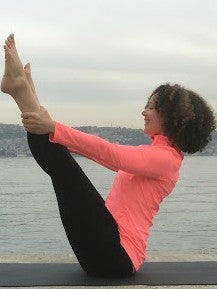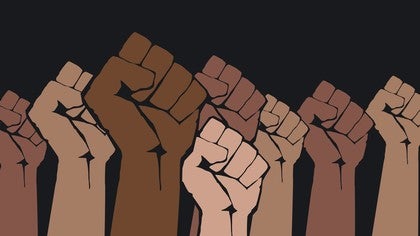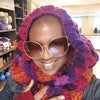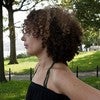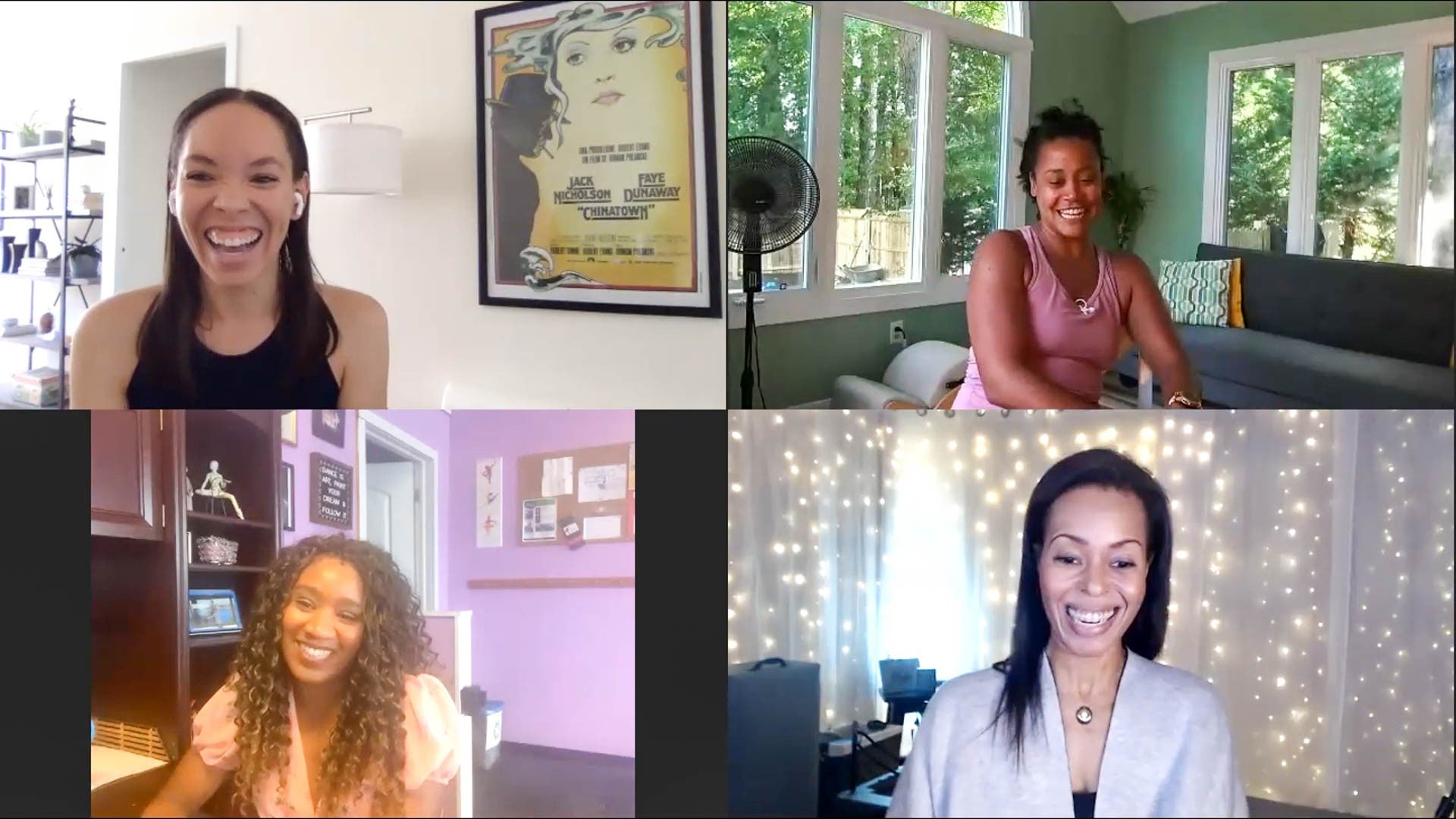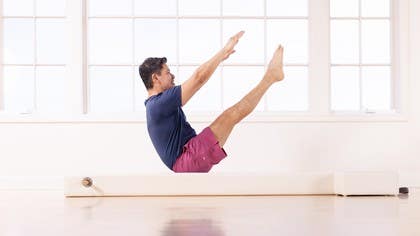
What is a 'Pilates Body'?
When Pilates Anytime asked me to write about this topic, I knew it would be a challenge but I underestimated how much so. It’s not a new topic by any means but it is important to address and re-address as many times as necessary. Even though I’ve never fit into the marketed mold or “idea” of what a Pilates teacher should look like, this idea that there is a ‘Pilates Body’ is larger and more encompassing than the scope of my experiences or knowledge. As I delved into this I began to realize that I too not only have much to learn but much to unlearn. Under the umbrella of this perceived ‘Pilates Body’ lies not only a society outside of the industry that promotes discrimination and self-loathing (under the guise of optimal health) but much much more. It’s not as simple as fat vs. thin; it’s about gender inclusivity, sizeism, the hierarchy of Pilates lineage, ableism, harassment, trauma, fatphobia, and mental health. The Pilates industry’s top players continue to feed into this unrealistic ideal and are slow to open up to inclusivity and change. There is no way I can cover all of this in-depth, but I implore you to read on, be open, continue the discussion, seek out additional resources for knowledge and education, and try… Try stepping out of yourself to look at your own belief systems and language and then try one thing to change it in a positive and more inclusive manner. A big thank you goes out to my colleagues (listed in this article) for their invaluable insight.
I’m sure we’ve all seen the cute social media posts that read 'How to have a Pilates Body?' followed by 'Have a Body. Do Pilates.' It translates to -- Pilates is for EVERYbody and it brings up 2 relevant questions:
1. Why do we even need posts like these?
2. If Pilates is about mind, body, and spirit, why is the Pilates industry fixated primarily on the body?
The Pilates industry is historically known as exclusive with a reputation of elitism, which still remains today. Even though instructors cite and like to believe Pilates is for everybody, everything from marketing, division within the community, clothing and even training programs say otherwise. And yes, that isn’t the entire industry, as there have been Pilates teachers and enthusiasts boldly striving to change the status quo. However, as a majority, we are still creating barriers that exclude, promote shame, anxiety, trauma, and unhealthy behaviors. Let’s remember that Pilates itself isn’t biased, the work of Pilates is for everyone, but rather it is us as humans that are biased and have created this exclusive environment. As such, it is only us that can change it.
At the time of this writing, when you google images of Pilates you’ll see primarily thin, abled white women with similar body types and maybe a couple of white slim men. Now, before you think this is an attack on thin white women and men -- it isn’t, it’s merely an observation and as I wrote in a previous article: “If those of the Pilates community believe themselves to share Joe’s vision of wanting the whole world to do his exercises then there needs to be equal representation.”
Quite frankly, 2020 and the pandemic has drastically changed the Pilates industry and expedited an outdated business model to erosion. Pilates Anytime instructor Kira Lamb wisely wrote, “I think it’s imperative to engage in these uncomfortable conversations and view them as springboards for growth and creativity. If we’re truly passionate about Pilates we’ll make conscious steps toward making our industry inviting and accessible to all.”
How Is Pilates Exclusive?
I think it’s important to cover some specific examples of exclusivity in the Pilates community because comments on Pilates forums, social media, and even in teacher training and at conferences show that many instructors don’t relate to those outside of their circle and hold implicit biases. The obvious ones are the commonly marketed 'long and lean' or 'long and lean like a dancer’s body' (which is ridiculous, dancers come in various shapes and sizes). Recently, instructors have made comments to the effect that larger-bodied people lack proprioception and will struggle with Pilates or that they have a lower tolerance for exercise, lying supine should be avoided because they can’t breathe due to the weight on their chest, and flexion is out too because the gut is in the way. These types of assumptions are not only inaccurate and offensive, but it shows there is a lack of understanding about the human body.
Instructor Nikki Naab-Levy says, “Fitness is not the same as aesthetics! It involves things like strength, mobility, cardiovascular endurance, and flexibility. You can achieve these things without ever looking a certain way. Working out won’t give you a specific body type." These biases go both ways. It's not our place to exclude or judge anyone that is thin or whose goals may include weight loss or certain aesthetics either. Pilates is meant to meet you where you’re at. A teacher’s job and livelihood are to teach the method.
James Crader shares that a client with a spinal cord injury confessed to him years later that initially, she faked 'normalcy' in order to be taken on as a client. She had been turned away from numerous studios due to her injury (ableism) so she’d left her crutches in the car, walked into the studio by supporting herself with the wall, and then willed herself to walk freely to a chair. She repeated the process when leaving. James didn’t know anything at the time about working with someone with her injury or how to help, he felt honored to be asked for support and they agreed to figure out things together.
There are numerous stories of individuals, both teachers, and potential clients, from all walks of life feeling unwelcome and judged in Pilates studios/classes. My hope is that these stories shed light on how our community lacks the fortitude to create safe spaces for all, so we can do better.
Education, Equipment, and Attire
Many instructors confess that they feel uncomfortable or lack the knowledge to teach individuals of various body types and sizes. Allison Skewes, who educates colleagues about teaching larger bodies and Teresa Ellis who built a safe community for her 'Strong Squad' (who need no labeling other than for the purpose of this blog-- include members of the LGBTQ2+, BIPOC, fat identified and trans and sex workers) agree that most teacher training isn’t accessible for all bodies or tend to have a one size fits all approach. This extends to a thorough knowledge of the Pilates apparatus such as size restrictions and weight capacity as well as spring adjustment for various body types and sizes. Most instructors don’t have this knowledge, in fact neither do some of the manufacturers.
Athleisure is a huge industry and has been another source of income for many studios, not to mention the cute Pilates focused gear out there. However, stopping at a certain size or fit literally reads 'you don’t fit in here.' It’s not our job as Pilates instructors to force an ideal or diet culture on anyone.
Language
All of the instructors I corresponded with agreed that words and language matter. James Crader summed it up perfectly, “We have to be really careful of who we are implicitly (or explicitly) inviting into Pilates, and who we are un/consciously leaving out when we choose words like long & lean, or capable ... or functional ... or any word that a specific population finds very valuable but may not even be accessible (much less important) to another group or individual.”
The word ‘fat’ is subjective but generally is used with a negative connotation. While some individuals use the word “fat” as an adjective and are ok as fat identified, many are not. Medical terms such as ‘obese’ and ‘overweight’ pathologize, so it’s best to use ‘larger-bodied’.
I asked Teresa Ellis if she cues differently between her ‘Butch into Pilates’ classes (for anyone that identifies as Butch within the LGBTQ2+ community) and ‘Fat, fabulous and fit’ classes. Her response was an easy “no” because she cues in an accessible way for all. As someone that says “dude, guys, girrrrlll and man” all the time and is figuring out pronouns, all of this seems daunting. Teresa says it will take some relearning but once you’re used to it, it’s easy.
Colleague Camaradarie
The amount of body-shaming and even bullying that goes on amongst Pilates teachers is appalling. It’s usually done under the guise of ‘walking the walk’ of Pilates and assuming an instructor is incapable of doing the work or teaching it. The expectation that every Pilates teacher has a flat stomach, slim thighs, ballerina-like posture, and be perfectly toned but not overly muscular is missing the purpose of Pilates. Kira Lamb says, “Joseph Pilates defined his Method as “the complete coordination of body, mind, and spirit” and throughout his book, “Return to Life Through Contrology” he prioritized optimal physical and mental function for a long and pleasurable life. We put far too much emphasis on “looking good” vs feeling good.”
Disrespecting another instructor based on one’s aesthetic preferences continues the cycle of elitism and exclusivity in the Pilates industry. The belief that someone cannot be a teacher based on size, ability, or body type equates to placing yourself (and those only like you) as superior and anyone else inferior (including the clients that pay you and you are helping).
Can We Make The Phrase ‘Pilates Body’ Inclusive?
The overall response was to ditch the phrase altogether. Teresa Ellis instead offers, “A Pilates Body is a strong body”, Kira Lamb prefers, “Pilates Spirit” and Allison Skewes says, “It’s not 2002 anymore. Ditch it”.
James Crader contemplates, “When we build a culture on fixing people... it requires clients to assume/admit/want to be broken to value fixing. What if the Pilates culture, and specifically the studio culture, was where any BODY could come to experience a safe space to learn, explore, play and ask questions about their felt experience and relationship with movement? How would that shift how you work? How would that shift the Pilates culture? If instead of being the modality that fixes broken people, it was the movement culture founded on creating safety and curiosity. What would it then mean to have a Pilates Body? How would that messaging show up throughout the Pilates industry? Unfortunately, addressing the symbol (Pilates Body) doesn't do much about addressing the root problem.”
What Can We Do About It?
Business gurus say "if you’re speaking to everybody, you’re speaking to nobody” but rarely a studio or instructor’s clientele is solely based on their dream client. Changing this culture is not easy and it may not be truly possible to be accessible for all, but it starts with awareness and then action. At the very least being aware of your own biases and making an effort to work on them can only enhance you as an individual and perhaps prevent you from unknowingly hurting or alienating someone else.
There are a lot of great teachers out there doing great work, find them, follow them, and learn from them. Be open to whom you hire (there are far too many stories of excited studio owners over a CV and phone call and then total dismissal upon meeting them). Allison Skewes offers a 3-day Inclusivity challenge through email. You can take the Harvard implicit attitude test for weight bias, disability, gender, or race (be warned, the results may be surprising).
Pilates forums are full of instructors asking for advice and teaching tips. There’s an obvious need for more workshops and continuing education on how to teach different body types and make your studio space or business inclusive. Let’s make room for fresh faces, diverse bodies, and abilities that have a wealth of knowledge to share in our conferences and studios!
Please keep the conversation going and let’s aim to keep it civilized, from all sides. The bullying and hate speech in our community is overwhelming and continues to feed into the division and elitism of our community; a community that WE built, not Pilates/Contrology itself.
Pilates teachers are passionate and want to share the benefits of this method so let’s celebrate the work and our bodies -- EVERYbody.
Comments
You need to be a subscriber to post a comment.
Please Log In or Create an Account to start your free trial.
